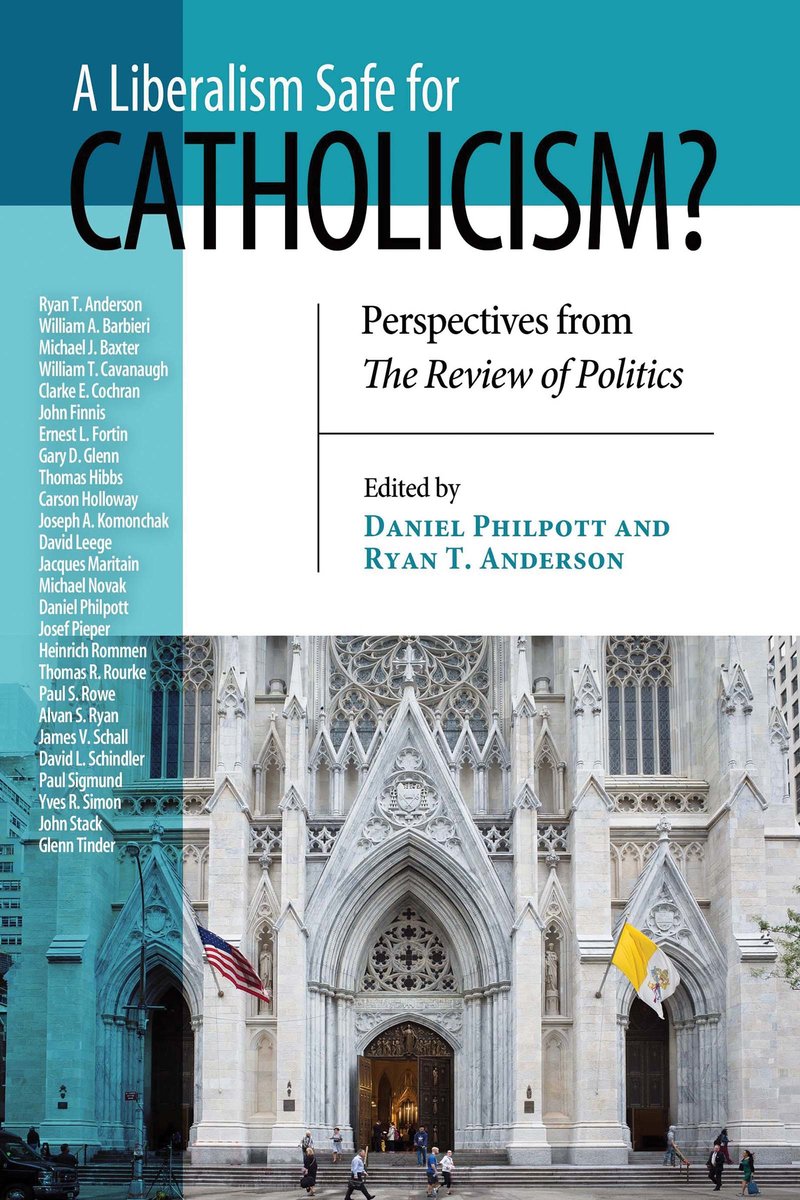This volume is the third in the Perspectives from The Review of Politics series, following The Crisis of Modern Times, edited by A. James McAdams (2007), and War, Peace, and International Political Realism, edited by Keir Lieber (2009). In A Liberalism Safe for Catholicism?, editors Daniel Philpott and Ryan Anderson chronicle the relationship between the Catholic Church and American liberalism as told through twenty-seven essays selected from the history of the Review of Politics, dating back to the journal´s founding in 1939. The primary subject addressed in these essays is the development of a Catholic political liberalism in response to the democratic environment of nineteenth- and twentieth-century America. Works by Jacques Maritain, Heinrich Rommen, and Yves R. Simon forge the case for the compatibility of Catholicism and American liberal institutions, including the civic right of religious freedom. The conversation continues through recent decades, when a number of Catholic philosophers called into question the partnership between Christianity and American liberalism and were debated by others who rejoined with a strenuous defense of the partnership. The book also covers a wide range of other topics, including democracy, free market economics, the common good, human rights, international politics, and the thought of John Henry Newman, John Courtney Murray, and Alasdair MacIntyre, as well as some of the most prominent Catholic thinkers of the last century, among them John Finnis, Michael Novak, and William T. Cavanaugh. This book will be of special interest to students and scholars of political science, journalists and policymakers, church leaders, and everyday Catholics trying to make sense of Christianity in modern society.
Contributors: Daniel Philpott, Ryan T. Anderson, Jacques Maritain, Alvan S. Ryan, Heinrich Rommen, Josef Pieper, Yves R. Simon, Ernest L. Fortin, John Finnis, Paul E. Sigmund, David C. Leege, Thomas R. Rourke, Michael Novak, Michael J. Baxter, David L. Schindler , Joseph A. Komonchak, John Courtney Murray, Samuel Cardinal Stritch, Francis J. Connell, Carson Holloway, James V. Schall, Gary D. Glenn, John Stack, Glenn Tinder, Clarke E. Cochran, William A. Barbieri, Jr., Thomas S. Hibbs, Paul S. Rowe, and William T. Cavanaugh.



